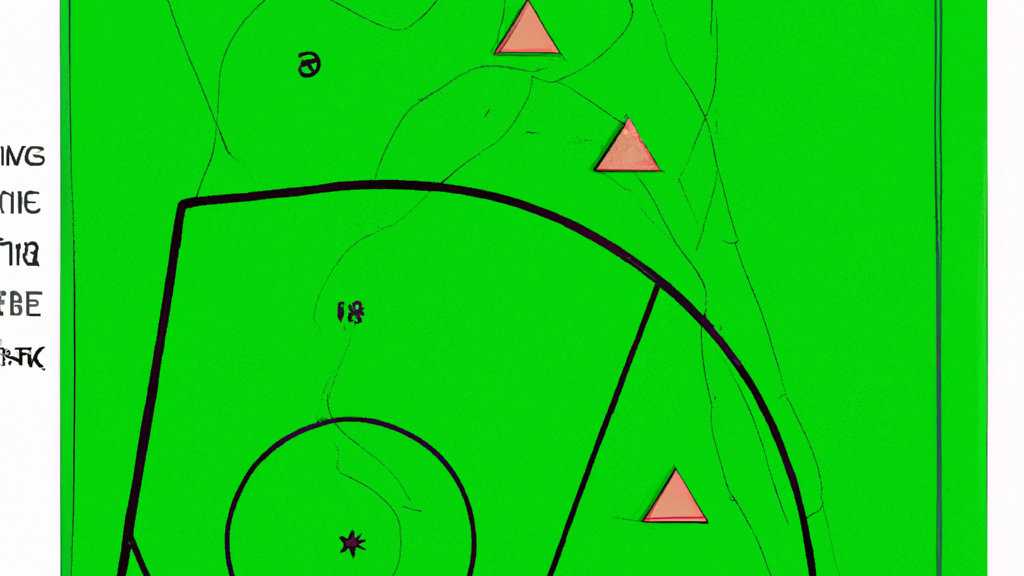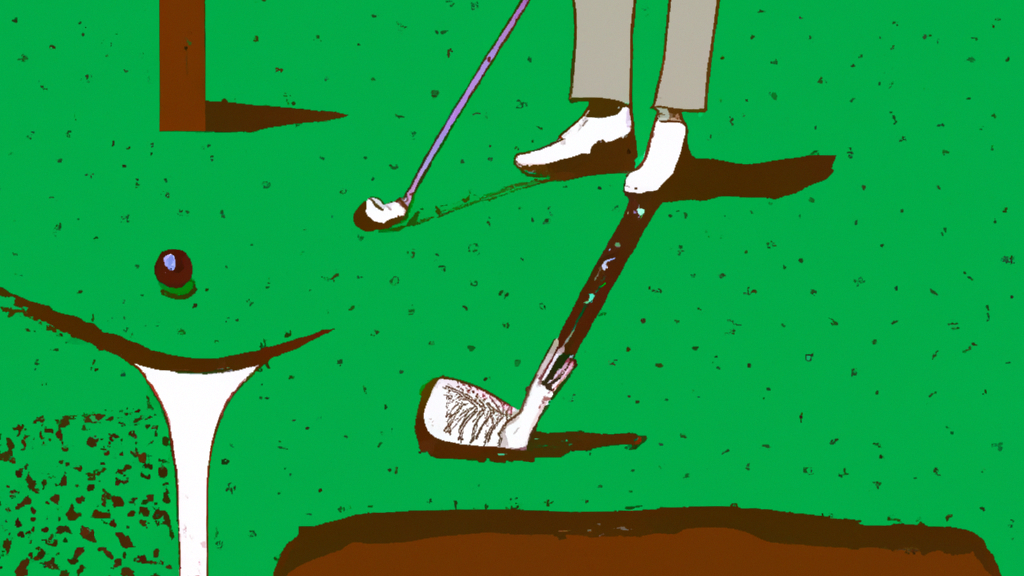THE MENTAL GAME OF RECOVERY: BOUNCING BACK FROM BAD SHOTS AND TOUGH HOLES
Golf is a game of skill, strategy, and mental toughness. It’s not just about hitting the ball straight and far, but also about how you handle the bad shots and tough holes. The mental game of recovery is a crucial aspect of golf that separates the amateurs from the professionals. In this blog post, we will explore the art of bouncing back from bad shots and tough holes, and how it can make all the difference in your game.
Whether you’re a seasoned pro or a beginner, mastering the mental game of recovery is essential to achieving success on the course. So, grab your clubs and let’s dive into the world of golfing and the mental game of recovery.

Golf: The Mental Game of Recovery
Golf is a game of skill, strategy, and mental toughness. It requires a lot of patience, focus, and resilience to succeed. Every golfer, whether amateur or professional, has experienced the frustration of hitting a bad shot or struggling on a tough hole. It’s easy to get discouraged and lose confidence, but the key to success in golf is the ability to bounce back from adversity and stay mentally strong.
The mental game of recovery is a crucial aspect of golf that is often overlooked. It’s not just about physical technique and skill, but also about mental fortitude and resilience.
1. Acceptance
The first step in the mental game of recovery is to accept that bad shots and tough holes are a part of the game. No golfer is perfect, and even the best players in the world make mistakes. It’s important to acknowledge that golf is a challenging sport and that setbacks are inevitable. By accepting this reality, you can avoid getting too down on yourself and stay focused on the task at hand.
2. Positive Mindset
The next step is to stay positive and maintain a growth mindset. Instead of dwelling on your mistakes, focus on what you can learn from them. Every bad shot and tough hole is an opportunity to improve your game and develop your skills. By staying positive and embracing a growth mindset, you can turn setbacks into opportunities for growth and development.
3. Stay Present and Focused
Another key aspect of the mental game of recovery is to stay present and focused on the present moment. It’s easy to get caught up in past mistakes or future worries, but this can distract you from the task at hand. By staying present and focused on the present moment, you can stay in the zone and perform at your best.
One technique for staying present and focused is to use visualization. Visualization involves mentally rehearsing your shots and imagining yourself hitting them perfectly. By visualizing success, you can build confidence and stay focused on your goals.
Another technique for staying present and focused is to use mindfulness. Mindfulness involves being fully present and aware of your thoughts, feelings, and surroundings. By practicing mindfulness, you can stay calm and centered, even in the face of adversity.
4. Pre-Shot Routine
In addition to these techniques, it’s important to have a solid pre-shot routine. A pre-shot routine is a series of steps that you take before each shot to prepare yourself mentally and physically. This routine can help you stay focused and calm, even in high-pressure situations.
Your pre-shot routine should include:
- A physical warm-up, such as stretching or swinging a club
- A mental warm-up, such as visualization or deep breathing
- A specific set of steps that you follow before each shot, such as lining up your shot, taking a practice swing, and visualizing your shot
5. Flexibility and Adaptability
Another important aspect of the mental game of recovery is to stay flexible and adaptable. Golf is a dynamic sport, and conditions can change quickly. It’s important to be able to adjust your strategy and approach as needed to adapt to changing conditions.
For example, if you’re struggling on a tough hole, you may need to adjust your strategy and play more conservatively. Or, if the weather conditions change, you may need to adjust your club selection or shot trajectory. By staying flexible and adaptable, you can stay in control of your game and avoid getting too frustrated or discouraged.
6. Support Network
Finally, it’s important to stay connected to your support network. Golf can be a lonely sport, and it’s easy to get caught up in your own thoughts and emotions.
By staying connected to your friends, family, and fellow golfers, you can get the support and encouragement you need to stay mentally strong and resilient. Your support network can also provide valuable feedback and advice on your game. By listening to their feedback and incorporating it into your practice and play, you can continue to improve and develop your skills.
In conclusion, the mental game of recovery is a crucial aspect of golf that is often overlooked. By accepting that setbacks are a part of the game, staying positive and maintaining a growth mindset, staying present and focused, using visualization and mindfulness, having a solid pre-shot routine, staying flexible and adaptable, and staying connected to your support network, you can bounce back from bad shots and tough holes and stay mentally strong and resilient. With these tools and techniques, you can continue to improve your game and achieve your goals on the golf course.

- Onto the Next Hole: How to Bounce Back in Golf – The Left Rough
If we never hit bad shots or had challenging holes, no one would play this great game. But a bad shot or even a bad hole(s) doesn’t have to derail your round. - Shake it Off: 7 Tips for Bouncing Back from a Bad Round | SCGA Blog
Nov 1, 2015 … Sure, it can be incredibly difficult to move on after a terrible round and there are plenty of reasons why — but the most important thing to … - Rebounding After a Bad Shot | Sports Psychology for Golfers
It’s amazing how a double-bogey on one hole can totally reverse how you are playing… if you let … Recovering from a bad shot is more mental than physical. - 5 Ways to Mentally Recover from a Blow up Hole | SCGA Blog
Apr 5, 2016 … Bad golf holes can happen to anyone, even PGA Tour pros. … The PGA Tour has a stat called “bounce back”, which tracks how players respond … - Follow these 4 steps to bounce back after a bad hole
Jul 3, 2021 … At the 2011 PGA Championship, Keegan Bradley found that out the hard way. His chip shot at No. 15 ran into the water, leading to a triple bogey … - The Best Way to Bounce Back from a Bad Hole is to Trust Your Swing
Apr 9, 2021 … Battling through difficult stretches in any round takes knowing how to hit “your” shot. - How to Bounce Back Mentally After a Bad Round of Golf
These are also the times when we see golfers trying to “make up” for a few bad holes by trying impossibly difficult shots which only dig them deeper into … - Bounce Back From A Bad Hole And Keep Your Confidence High
Mar 31, 2017 … “How can I erase a bad shot and not let it create doubt and affect my mood for the next shot … It’s hard to bounce back from a bad hole! - Third Round Interview with Padraig Harrington
Apr 1, 2023 … Q. Padraig, nice round today bouncing back from the 73 yesterday … but only three shots off the cut and I froze for a good five holes. - Recovering from a Horrid Round – Golf Tips – Team Titleist
Jun 26, 2017 … I’m still hitting bad shots here and there, a few bad holes BUT the biggest difference is moving on and letting myself relax.
Interesting tidbits about The Mental Game of Recovery: Bouncing Back from Bad Shots and Tough Holes
- Golf originated in Scotland in the 15th century and was originally played with a stick and ball.
- The first golf club in America was founded in Charleston, South Carolina, in 1786.
- The Masters Tournament, one of the four major championships of professional golf, has been held annually at Augusta National Golf Club since 1934.
- Tiger Woods is considered one of the greatest golfers of all time and has won a total of 82 PGA Tour events throughout his career.
- In addition to physical skill, mental toughness is crucial for success on the golf course as players must remain focused despite distractions such as weather conditions or noisy crowds.
- Many country clubs offer amenities beyond just golfing including tennis courts, swimming pools, fine dining restaurants and social events for members to enjoy year-round.
- Professional caddies play an important role on tour by providing advice on club selection and reading greens to help their player make strategic decisions during each round





